Science Talk
With our Science Talk blog, we hope to lift the lid on the black box that is the ICR: to show you inside our labs, to introduce you to a few of the people here who make the discoveries, and to allow them to tell some of the stories behind the science. We try to put our discoveries in a wider scientific context, and give an idea of how our science is actually done. We also give you the view from the ICR of important developments in the wider world of cancer research.

Childhood cancer awareness month: how we’re bringing genetic testing to children with cancer
To mark childhood cancer awareness month, Rose Wu introduces one of our pioneering programmes of childhood cancer research.
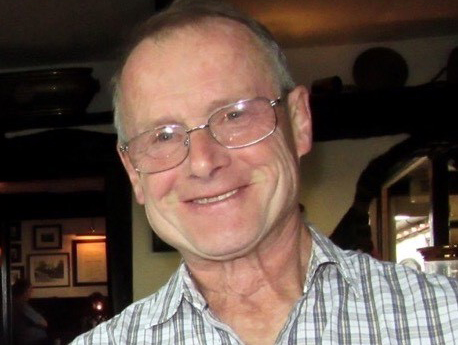
How will a clinical trial called CHHiP affect the future of prostate radiotherapy?
Men with prostate cancer can now face a much less daunting course of radiotherapy thanks to the CHHiP clinical trial. Our Cancer Stories Officer, Lydia Brain, spoke with Derek Tomlin, a patient whose treatment was influenced by CHHiP, to find out how the trial could improve the experience of prostate cancer patients in the future.
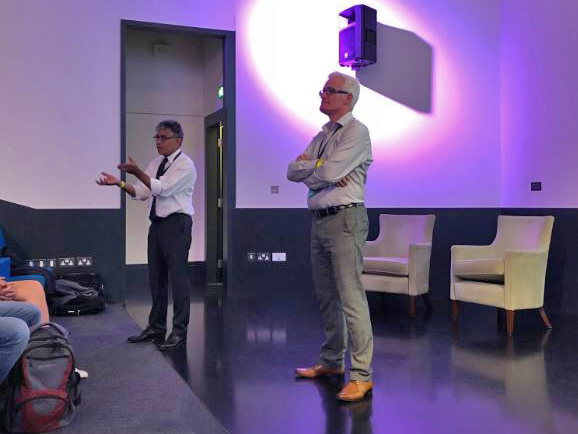
Engaging the public about the promise of cancer immunotherapy at Science Museum Lates
On the scale of hot topics, cancer immunotherapy is arguably the hottest. Interim Head of Editorial Projects, Dr Alison Halliday conveys how ICR scientists engaged a public audience about recent progress in this exciting field at an event at London’s Science Museum.
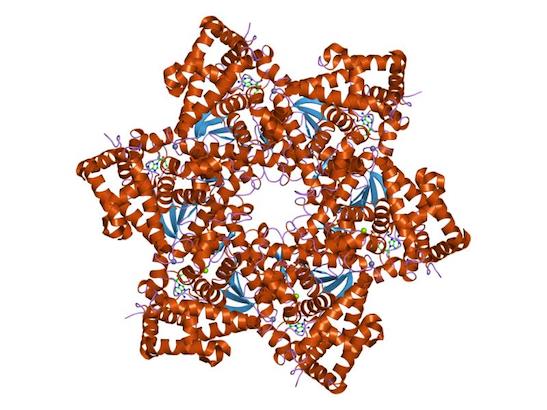
Boys one step closer to receiving cancer-protecting HPV vaccine after committee approval
An advisory committee has recommended that the government extend the HPV vaccine to boys in the UK. Dr Claire Hastings explains how HPV can cause cancer, why the recommendation for boys is significant and what still needs to happen before they begin to receive the vaccine.
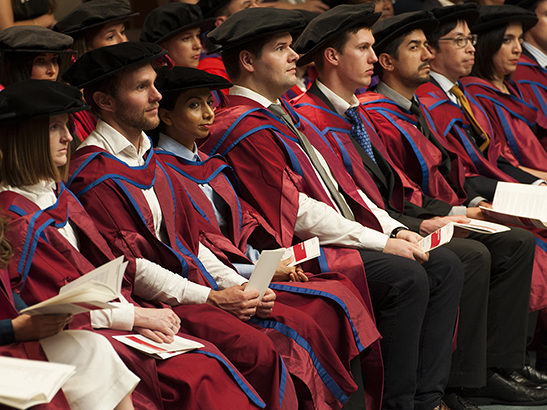
Our former students are leaders in cancer research across the UK and the world
A new regulatory system is challenging higher education institutions to demonstrate the value of the education they provide. For the ICR, argues Registrar Barbara Pittam, that value is shown by the impact of our students worldwide.

Why LGBT+ representation matters in science
As the ICR joins organisations worldwide in supporting LGBTSTEM Day, Conor McKeever, our Science Communications Officer, shares his thoughts on the importance of making science inclusive.

The NHS at 70 – how three ICR discoveries have helped improve the lives of people with cancer
The NHS turns 70 this year, and we’re proud to be involved with three important research discoveries that have been highlighted in the #NHS70 campaign as having transformed the lives of cancer patients.

Outsmarting cancer – staying one step ahead of drug resistance
Cancer drug resistance is one of the biggest challenges of 21st century medicine – and a challenge that our researchers are facing up to. Rose Wu introduces how some of our researchers are aiming to outsmart cancer by tackling drug resistance.

The secrets of successful industry-academic partnerships
The Institute of Cancer Research, London – the world’s leading academic centre for drug discovery – has announced a major new strategic partnership with science and technology company Merck, and Cancer Research UK.
Here Dr Angela Kukula, Director of Enterprise at The Institute of Cancer Research (ICR) – and responsible for its interactions with industry – gives some tips on what makes a good collaboration between industry and academic researchers.

How our research is making radiotherapy smarter and kinder for cancer patients
We’ve come a long way from the early days of radiotherapy. Thanks to years of research, the treatment cures many patients, and we’re now working on ways to make it smarter, kinder and more convenient for them.

Immunotherapy: How we’re using the immune system to beat cancer
Immunotherapy is the latest revolution in cancer treatment. Bold claims have been made about its potential – but should you believe the headlines? And how does it work?

ASCO 2018: World’s largest cancer conference seeks to expand the reach of precision medicine
Leading cancer researchers from across the world are travelling to Chicago for the ASCO 2018 Annual Meeting, the world’s biggest cancer conference. The conference is aiming to ensure as many patients as possible benefit from latest advances in precision medicine – and ICR researchers are at the forefront.
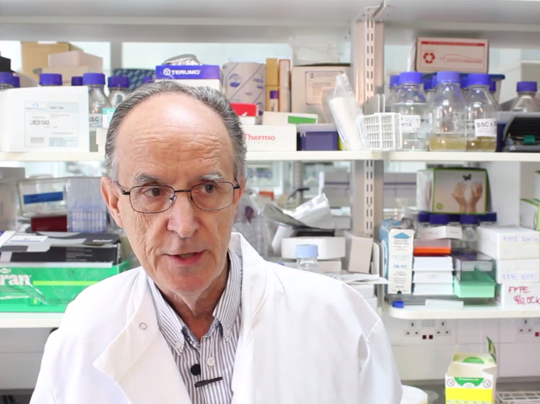
Could childhood leukaemia become a thing of the past?
The ICR’s Professor Mel Greaves has revealed the likely cause of the most common type of childhood leukaemia, and that it might be preventable. Dr Claire Hastings explains the research findings, and what it means for children and their families.

Childhood cancer fundraiser named NHS Hero for supporting ICR research
Lynn Lucas co-founded the Chris Lucas Trust in memory of her son, who died from cancer of the soft tissues. Now she has received the NHS Hero Award for Fundraiser of the Year for her continued support for The Institute of Cancer Research, London. Lydia Brain, our Cancer Stories Officer, spoke with Lynn about her achievements and also met the ICR researcher whose lab has been supported for so long by the charity.

The long term impact of cancer; enabling patients to thrive and not just survive
Dr Olga Husson is researching the long-term impact of cancer on individuals who were treated for bowel cancer. Our Cancer Stories Officer, Lydia Brain, spoke to her and bowel cancer advocate Cara Hoofe on the importance of more research and better follow-up treatment pathways for patients.

Making a real impact on the lives of people with cancer
The Institute of Cancer Research, London, is one of the world's most influential cancer research institutes. Our Internal Communications Manager Rose Wu writes about how we've helped to transform our understanding of cancer and how it can be treated in ever smarter, kinder ways to improve patient lives.

Communicating cancer research: my experience as an intern at the ICR
The ICR’s Communications Directorate is responsible for maintaining our website and social media channels, both vital platforms for promoting our world-class research. Solomon Brown, our first ever Digital Communications Intern, gives a personal view on his six months at the ICR.

New test for ovarian cancer mutation heads into clinical trials
Today, 8 May 2018, is the World Ovarian Cancer Day – and to mark the occasion our Communications Administrator, Tilly Haynes, spoke with Dr Rachael Natrajan and Dr Saira Khalique about innovative research which is driving the treatment of gynaecological cancers in the right direction.

Taking time out from cancer research to meet the future King
A team representing The Institute of Cancer Research, London, recently visited Buckingham Palace to receive a major honour from Prince Charles. Our Head of Media Relations, Ben Kolb, met two PhD students from the group to find out more about their experience of the day and life studying at the ICR.

Putting the person in personalised medicine
Dr Sam Dick, our Science Information and Policy Officer, considers the importance of assessing a patient’s views about their quality of life for the future of personalised medicine.